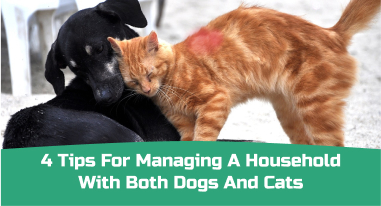Table of Contents
Introduction
March is observed as the National Pet Poison Prevention Awareness Month. The third week of March is also celebrated as Pet Poison Prevention Week. The National Safety Council encourages certified veterinary professionals to take this opportunity to educate pet owners.
Accidental poisoning in pets is a primary concern among pet parents. Although Veterinarians and veterinary technicians raise awareness among pet parents to keep pets safe from dangerous chemicals and other hazardous substances causing pet poisoning, pet poisining month gives the topic the necessary spotlight needed to drive home the value and awareness.
This article tries to explain and give awareness among pet parents regarding the serious harm pets may face due to poisoning.
What Pet Owners Should Know About Pet Poisoning
Pet parents should be aware of everyday household items that can be poisonous for their furry friends. Usually, pet parents like sharing their food with the pets as a token of love and affection. However, there are ingredients in human food that may be dangerous for pets, such as dogs and cats.
Let’s drill down some significant household toxins for pets.
Household Toxins Causing Pet Poisoning
Xylitol
It is a sweetener used in sugar-free products and some peanut butter – can be poisonous for pets.
Flowers
Flowers such as daffodils, lilies, and tulips can be a health hazard for cats.
Human Medications
Keep your pets safe from dropped pills. Over-the-counter medications, prescription medications, and accidental spills can harm your pets.
Chocolates
Cholcolates are a total no to dogs. A chemical called theobromine, macadamia nuts, and other ingredients in baker’s chocolate and other baked goods may be poisonous for pets.
Mushrooms & Berries
Plants, mushrooms, and fruits like berries may be toxic for your pets.
Pest Control Products
Pesticides like rodenticides may be toxic for your pets that can cause severe poisoning symptoms.
Fertilizers
Chemical fertilizers contain organophosphates and carbamates, which are poisonous for pets.
Cleaners and Chemicals
Household cleaners used in your bathrooms, kitchen, cars, along with swimming pool and hot tub products, can be poisonous for your pets.
What Are The Signs and Symptoms of Pet Poisoning
If your pet swallows a pill or consumes any toxic substance, you may notice any or all of the following symptoms:
- Continuous vomiting or diarrhea with blood traces
- Lack of appetite
- Tremors collapse
- Excessive drooling
- Restlessness
- Pale Gums
- Seizure or Tremors
- Collapse
Round the Clock Pet Poison Helpline
Obtaining emergency care at the earliest is a must to save your pet and help it recover more quickly. You can call the following 24/7 pet poison helpline to talk to an expert:
(855) 764-7661
Poisoning through the above-mentioned ingested toxins may lead to various after-effects among your pets, such as:
- Raised blood sugar level
- Neurological problems
- Kidney failure
- Serious stomach infections
- Problems with the red blood cells
- Blood clotting disorders
- Brain swelling
- Liver failure, and more.
Even small amounts of toxic consumption may create severe symptoms among your pets. You should visit a vet earliest when your pet ingests any poisonous substances. The emergency & critical care vets are experienced professionals who can analyze the pet’s situation and recommend the best possible action to save the poisoned pet.
In the most critical situations, you should utilize the pet poison helpline, which can be a lifesaver for your furry friend. You can seek guidance & advice from a veterinarian experienced in handling the situation till you reach a nearby vet.
How To Find An Emergency Veterinarian Online
Has your pet ingested harmful plants or other toxic elements? You don’t need to browse through yellow pages and telephone directories to find an emergency veterinarian under challenging situations.
You can make the most effective use of our platform, a reputed online vet directory.
Visit our platform to find vet clinics near you. You can find a vet in your city, metro area, county, neighborhood, or zip code area. Choose the desired option and type in the area name – you will get a list of the most reputed vet clinics and animal hospitals.
Now, as your pet has ingested something poisonous, you require immediate emergency accommodation. Our well-designed portal helps you with that!
Scroll down a bit, and you find a filter for emergency accommodation. Choose from the options – clinic, animal hospital, or urgent care. You get a curated list of vet clinics in your area, ready to accept emergencies.
Select and browse clinic profiles to find contact details and driving directions. Call ahead to let the clinic staff know about the poisoning and your pet’s situation. Follow the driving directions to conveniently reach the desired vet clinic as soon as you can!
To Summarize
The article takes you through various aspects of pet poisoning. We have also provided information about household hazardous items that cause pet poisoning through an infographic above. March is pet poison prevention month. We intend to spread awareness about pet poisoning through the touchpoints covered in this article.
At the same time, we would like to help you with some practical ways to deal with poisoning. We believe that every pet should get immediate medical attention when poisoned or during any other difficult situation like an accident or severe illness. Take the help of our online vet discovery platform to find a veterinary clinic near you to save your pet and help it lead a healthy and happy life!




